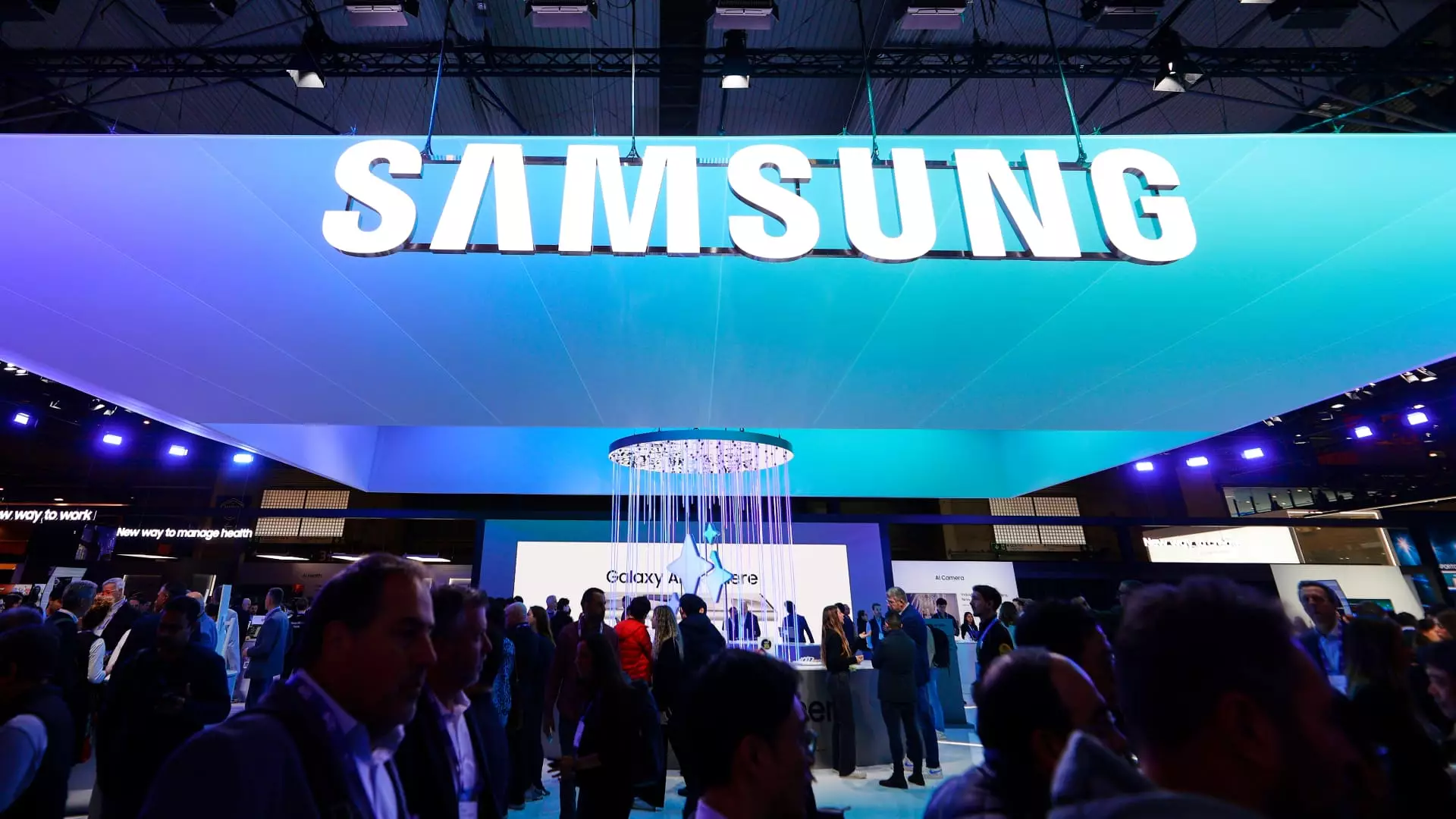South Korean tech powerhouse Samsung Electronics recently announced disappointing projections for its operating profits in the third quarter. The company anticipated a substantial increase in profits compared to the previous year, yet the forecast still fell short of market expectations. This disconnect highlights the mounting challenges Samsung faces in an increasingly competitive landscape, particularly in its core memory chip sector.
Samsung’s guidance indicated an expected operating profit of approximately 9.10 trillion won ($6.8 billion) by the end of September 2023. Although this figure represents a striking 274% increase from the 2.43 trillion won reported in the same quarter the previous year, it failed to meet analysts’ estimates from LSEG, which had projected profits of about 11.46 trillion won ($7.7 billion). Such discrepancies suggest that, while Samsung’s year-on-year improvements are notable, external market conditions have significantly hindered its performance.
The primary culprits for Samsung’s shortfall appear to be related to its memory business facing “one-time costs and negative impacts.” These include difficulties such as inventory adjustments compelled by mobile clients and intensified competition from Chinese manufacturers flooding the market with legacy products. Analysts like Daniel Yoo from Yuanta Securities pointed out that Samsung is struggling to maintain its aggressive market share as demand for older chips declines. The struggle to adapt to changing market dynamics raises questions about the company’s flexibility and strategic planning.
In light of the disappointing projections, Samsung’s leadership is taking drastic operational measures, including workforce reductions in certain divisions. Reports suggest that the company instructed its subsidiaries to eliminate up to 30% of their staff. This indicates a significant response to the economic pressures Samsung is facing, but it could also affect employee morale and future innovation potential.
The financial repercussions of these developments are already being felt on the stock market, with Samsung’s shares registering a 22% decline since the beginning of the year. This trend reflects investor concern over the company’s ability to navigate these challenges effectively. Following the release of the profit guidance, Samsung’s stocks dropped by 0.98%, further underscoring the adverse sentiment among investors.
As Samsung prepares to release detailed third-quarter results later this month, it stands at a critical juncture. The company’s ability to adapt to rapidly changing market conditions will determine its future market position. Facing competitive pressures, evolving consumer demands, and operational challenges, Samsung must not only reassess its market strategies but also enhance its agility in response to the unpredictable tech landscape. The next steps taken by the company will be crucial in shaping its recovery trajectory and reinforcing its status as a leader in the technology sector.

